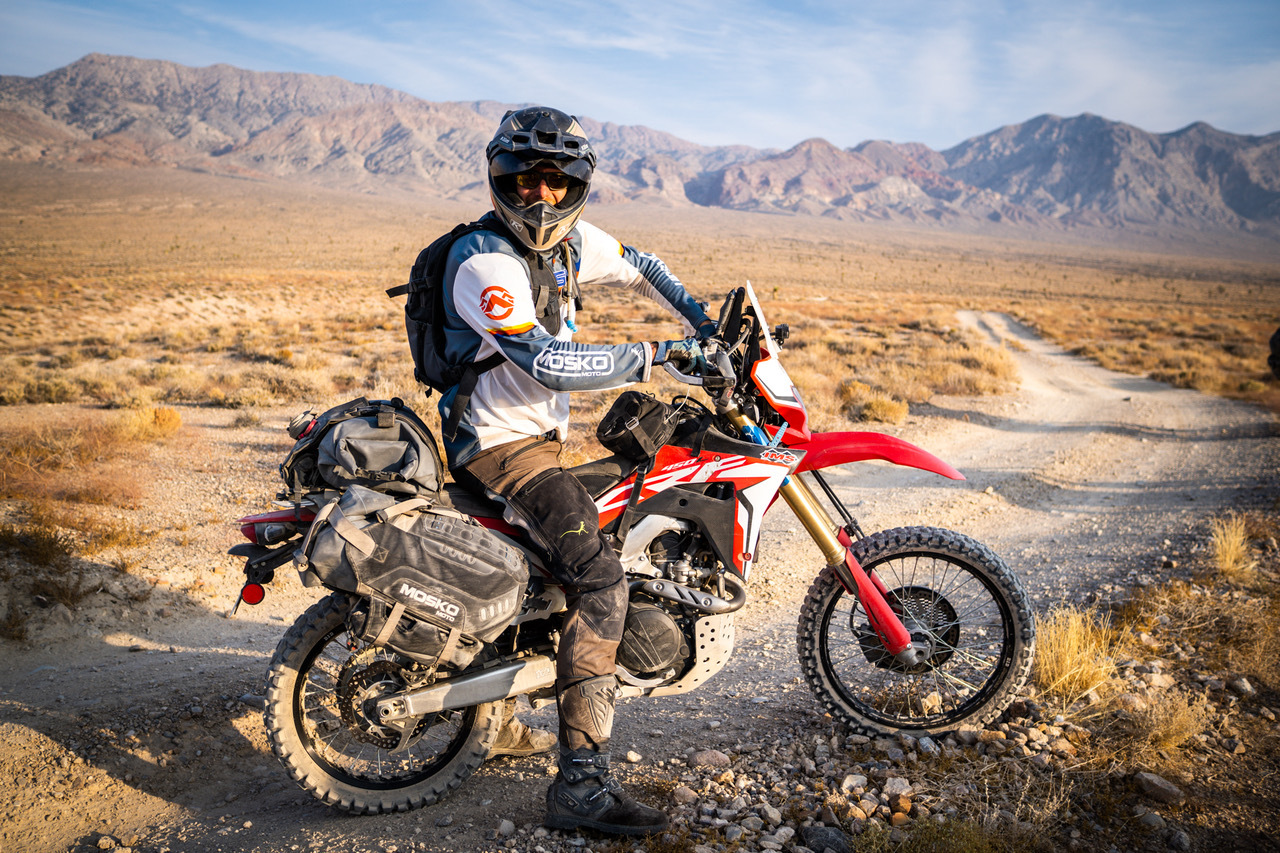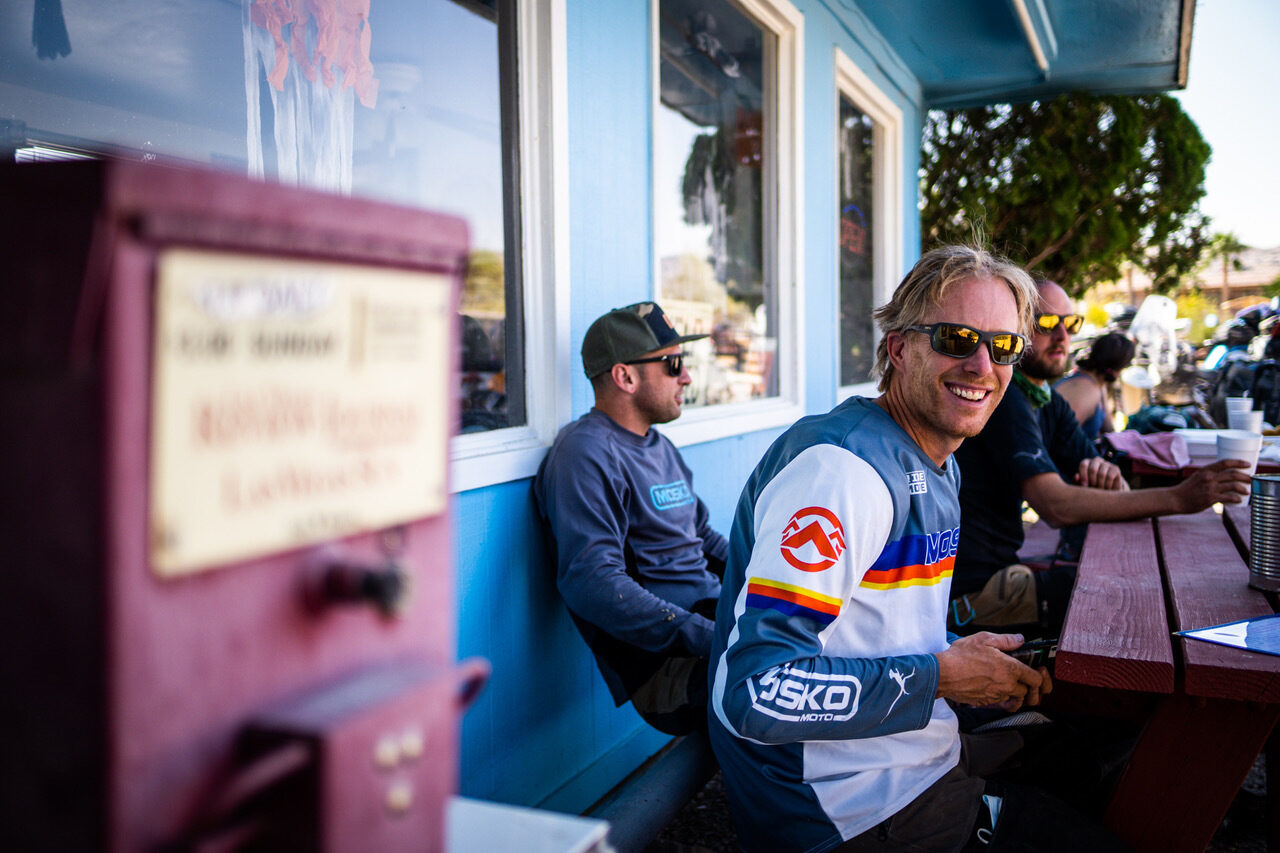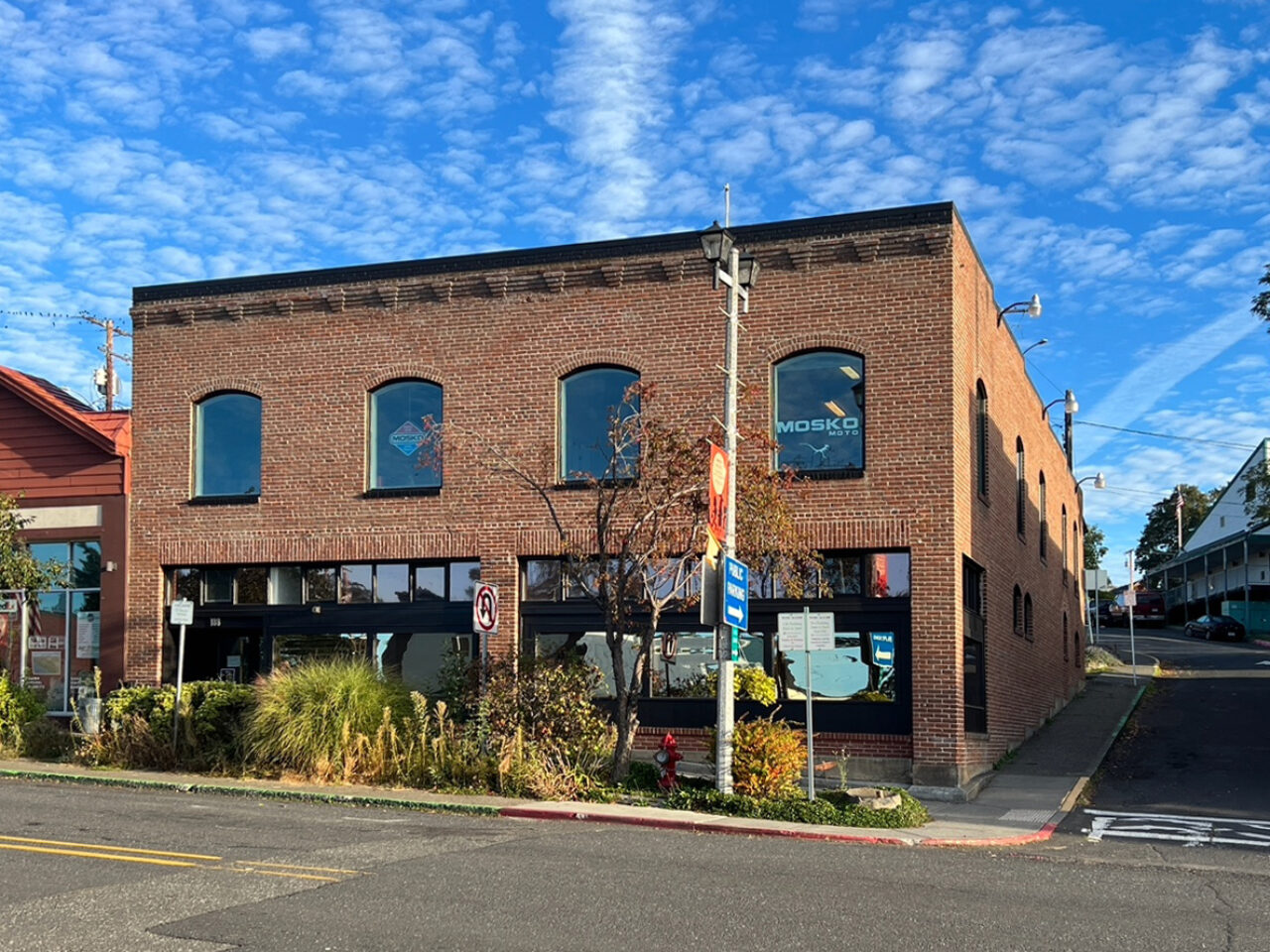Andrew Bryden and Scott Bryan on How ECUs Industrial Design Program Set Them Up for Success

Mosko Moto cofounder and design director Andrew Bryden prepares to put his company's apparel to the test. (Image courtesy Mosko Moto)
Posted on
The cofounder and apparel director of Mosko Moto discuss the value of finding a career that suits your passions, and how Emily Carr University prepared them for their unique path.
In 2013, Andrew Bryden (BDes 2000) co-founded a new motorcycle luggage company with business partner Pete Day. The pair wanted to focus on rugged, functional, durable accessories for adventure cycling.
Pete planned to handle most of the business logistics and marketing. Andrew, who was leaving his position as a lead bag designer for DaKine, would bring design experience to the table. As avid motorcyclists , both men knew what the current market was lacking in terms of gear.
In an early blog post documenting their process, Pete wonders “why cyclists, climbers, skiers, and backpackers have such a great assortment of technical bags available to them, but dualsport motorcyclists do not.” Pete and Andrew believed this dearth of options did not stem from a lack of consumer interest or demand, and their Mosko Moto mission crystallized; they would design and produce motorcycle bags of a range and quality on par with today’s elite outerwear brands.

Andrew relaxes roadside with friends. (Image courtesy Mosko Moto)
When Andrew exited his role at DaKine, fellow ECU alum and friend Scott Bryan (BDes 2004) took his place. Several years later, the two reconnected when Andrew invited Scott to visit Mosko Moto headquarters in White Salmon, Washington, and offer his opinion on their new apparel concepts.
Andrew admits he had his “sights set” on hiring Scott. The visit evolved into an on-the-spot interview with Pete, and Scott accepted the role of apparel director. Scott soon took up motorcycling as well, understanding that real-world experience would improve his designs immeasurably.
Both alums say Emily Carr University’s unique Industrial Design program prepared them to be flexible, innovative and well-equipped to both understand and solve complex problems. Like many clever kids, Andrew wanted to be an ‘inventor’ in childhood. He felt that design allowed him to fulfill that dream. ECU, meanwhile, served as ideal grounds for experimentation.
Scott stresses that while new technologies and tools are always being created, ECU’s focus on theory is “forever applicable.” It was in a soft-material focused class with instructor Catherine Brown that Scott says he first realized Industrial Design could be more than “cell phones and furniture.” In fact, design could allow him intimate access to the world of outdoor sports. He could even use his products to influence the way a sport or hobby was experienced.

Mosko Moto HQ in White Salmon, Washington. (Photo courtesy Mosko Moto)
Andrew’s advice is to keep lifestyle and overall life goals in mind when pursuing a design career. He urges students and new graduates to consider who they want to work with, and in which environment they want to do it. If you’re designing cell phones or vacuum cleaners, he notes, you’ll probably be in a “big, corporate office in an industrial park somewhere.”
The story of Mosko Moto proves it’s possible to marry a design career with a passion for the outdoors in a practical, meaningful way. The company’s employees are almost entirely fellow motorcyclists who have built a strong community, meeting up multiple times per year to ride together at various locations across the globe.
Andrew points to an “eye-opening” moment of appreciation for his chosen career path, when he was staying with like-minded people in a yurt on a snowy mountain, to test out products he designed. “I don’t think they do that at a cellphone company,” he laughs.
Visit our website to learn more about studying Industrial Design at Emily Carr.